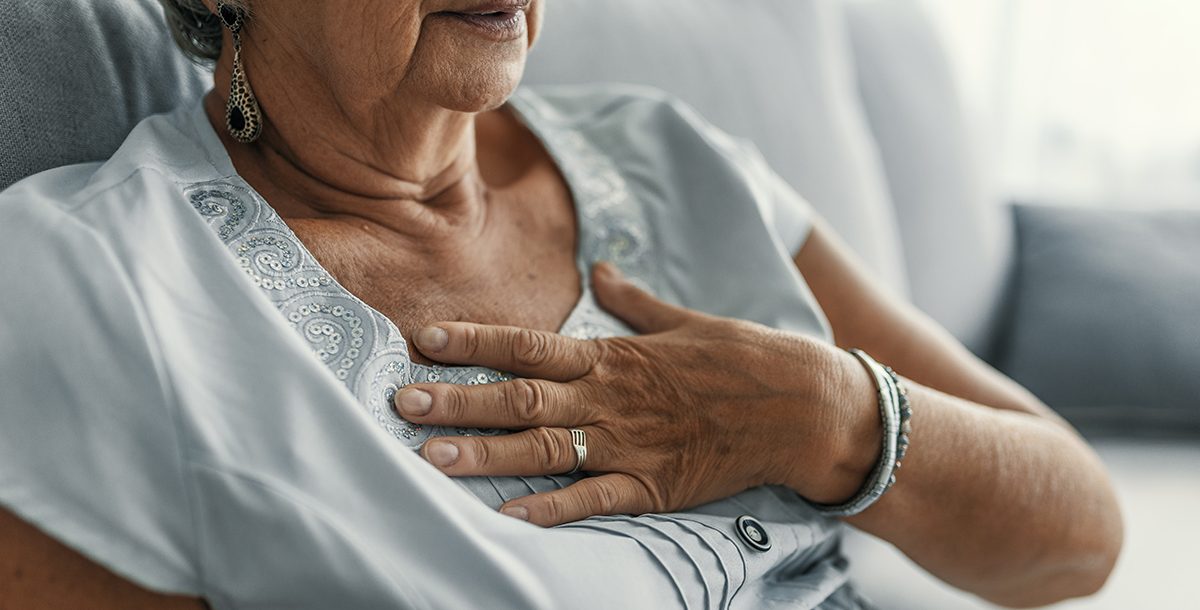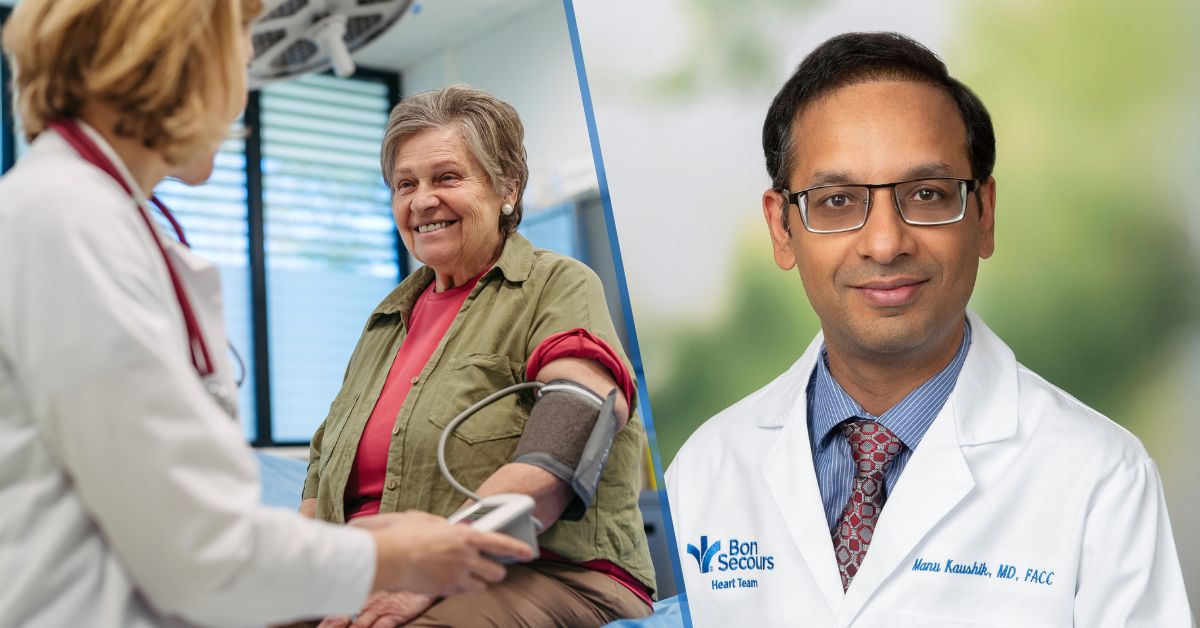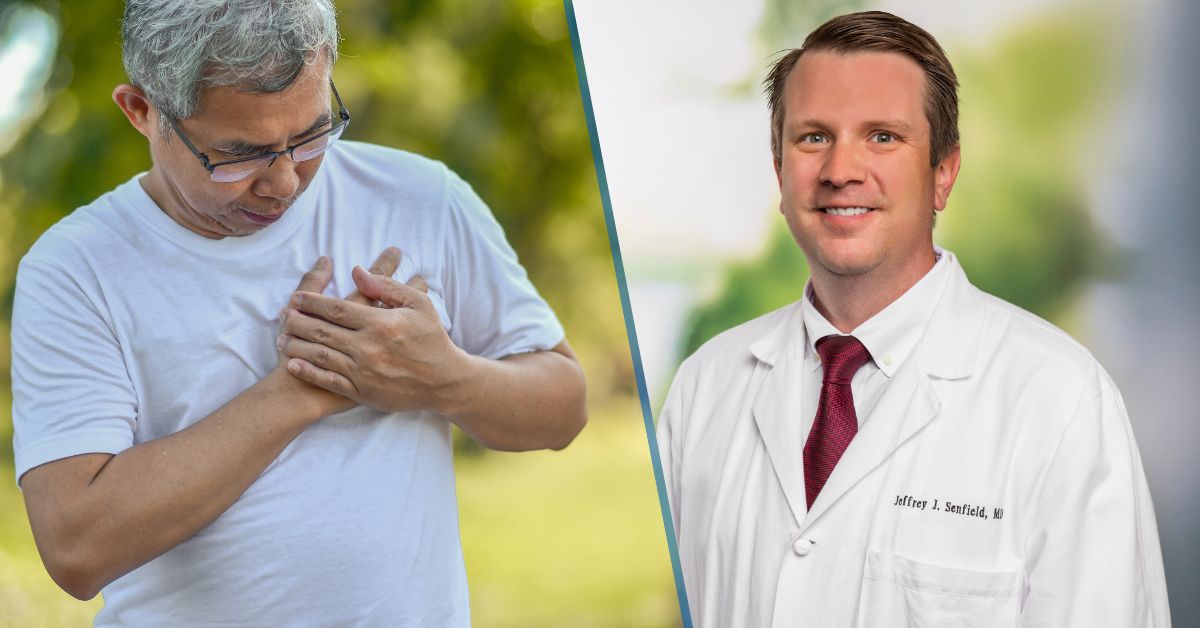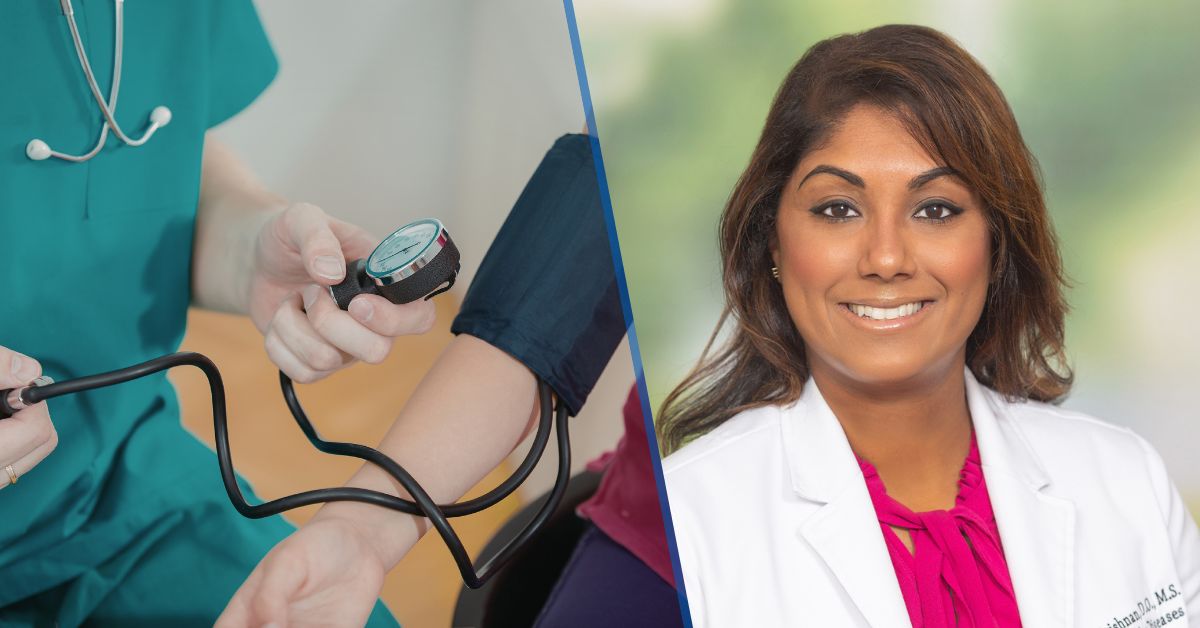It’s perfectly normal to pass gas between 10 and 20 times a day. At the same time, it’s understandable to be worried if you feel chest pain after eating a meal. However, what causes gas and chest pain can be difficult to discern.
While you may simply feel gas pain in your chest, this pain could also indicate a serious heart issue. Learn how to determine if you or a loved one needs to seek medical attention.
Concerned about heart health? A cardiologist will help you understand any potential conditions and advise possible treatments. Find a Bon Secours cardiologist near you today.
Know when it’s gas
You may feel pain in your chest if gas has gathered in your stomach or the left portion of your colon. When you swallow too much air, gas can become trapped in your digestive tract. You may also feel gas pain near your chest for other food-related reasons. They include:
- A food intolerance may upset your digestive system and cause you to build up gas.
- Artificial sweeteners can cause digestive upset symptoms, including gas pains.
- Carbon dioxide gas in carbonated drinks, like soda, can cause an air bubble feeling in your chest.
- Eating a lot of fiber-rich foods can produce too much fiber in your gut, which can cause gas for longer periods.
- Food poisoning can cause gas pain near your heart, as well as fever, nausea or vomiting, diarrhea or blood in your stool.
Consider medical conditions that cause gas pains
Besides food and drink, you may have a medical condition that creates gas pains.
- Heartburn or indigestion can cause stomach acid to leak up into the esophagus, causing sharp chest pains from burping.
- Acid reflux, also known as gastroesophageal reflux disease (GERD), can cause air to become trapped in your esophagus. The feeling can cause anxiety, which then leads to a short burst of heart palpitations.
- Gallbladder disease can cause chest pain from excess gas. This issue can also cause a loss of appetite, nausea, chills and pale stools.
- Inflammatory bowel disease (IBD) can cause a buildup of gas in the digestive system. Crohn’s disease and ulcerative colitis can cause more than just excessive flatulence. They can also lead to stomach pain, diarrhea, constipation and nausea.
Contact your primary care provider if you believe you are struggling with one or more of these conditions. They will be able to order numerous tests to help diagnose the root of your problems.
Identify the signs of gas
There are noticeable differences between the feeling of gas and chest pain with a heart attack. When it’s gas, you’ll likely experience the following:
- Bloating
- Burping
- Knotted stomach
- Passing gas through your backside
- Quick, sharp pains that suddenly come and end
If it’s heartburn, it will happen soon after eating or can wake you from sleep after a couple of hours. You’ll feel the burning stomach acid moving up from your stomach into your throat. You’ll probably taste something sour in your mouth as well.
Taking antacids is one of the best home remedies for chest pain due to gas.
Identify the signs of a heart attack
It may be more than just gas if you feel an aching or burning in the chest area. Check to see if any of the following symptoms are occurring along with severe gas pains. If so, you need medical help for a heart attack immediately.
The signs of a heart attack:
- Cold sweat
- Heart palpitations and increased heart rate
- Heaviness, pressure or squeezing pain in the chest
- Lightheadedness
- Nausea or vomiting
- Pain in one or both arms
- Pain in the left shoulder
- Pain in the neck or back
- Pain in the stomach
- Pain in the throat or jaw
- Shortness of breath
- Sudden and unexplained fatigue
- Unexplained anxiety
- Weakness
How we can help
Determining the cause of gas and chest pain can not only help you feel more comfortable, but it could also potentially save your life. When you have signs of a heart attack, it’s often best to err on the side of caution and either call 911 or go to the emergency department.
If gas pain is the cause and it occurs often, make an appointment with your primary care provider to discuss your symptoms. They can suggest either over-the-counter or prescription treatments to relieve the gas pain. However, for some conditions, they might refer you to a gastroenterologist.
Want to learn more about your heart health? Learn about the cardiology services we provide at Bon Secours.





